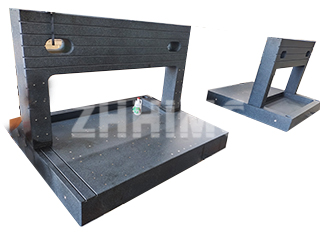The question of whether the granite precision platforms used beneath critical medical devices, such as surgical instrument testing rigs and high-resolution imaging equipment, must comply with specific medical industry standards is highly relevant in today’s quality-driven environment. The simple answer is that while the granite itself is typically an “accessory” or “supporting component” and not a medical device, its manufacturer must adhere to the most rigorous quality management systems to ensure the component meets the non-negotiable standards of the medical device manufacturer, ultimately supporting patient safety and device efficacy.
A medical device manufacturer operates under stringent regulatory oversight, primarily governed by standards like ISO 13485 (Quality Management Systems for Medical Devices) and US FDA Quality System Regulation (QSR), which is increasingly harmonized with the ISO framework. These regulations mandate a robust quality management system (QMS) that dictates everything from design validation and risk management (ISO 14971) to manufacturing control and traceability.
Crucially, the granite base, in this context, functions as the fundamental metrology reference plane. Its role is to provide a non-magnetic, thermally stable, and vibration-damped foundation upon which the high-precision medical machinery—such as a CMM validating a spinal implant or a laser system calibrating an imaging sensor—can operate within its specified tolerances. Any failure in the granite platform’s accuracy, flatness, or stability directly translates into measurement error or operational drift in the medical device itself.
Therefore, although the granite is not subject to biocompatibility testing (ISO 10993) or sterilization validation like a surgical tool, the component supplier must demonstrate full compliance with the core quality and metrology standards demanded by the industry. For a manufacturer like ZHONGHUI Group (ZHHIMG®), this means providing platforms that are manufactured and certified to globally recognized metrology specifications such as ASME B89.3.7 or DIN 876. More importantly, the granite supplier’s quality management system must align with the demanding requirements of their medical industry client, which often includes having an ISO 9001 certified system—a foundational requirement that ZHHIMG proudly holds alongside ISO 14001 and ISO 45001.
Furthermore, true assurance in this sector extends to traceability. Every ZHHIMG® Precision Granite platform comes with calibration certificates traceable to National Metrology Institutes (NMI). This documentation proves that the base’s flatness, straightness, and perpendicularity were measured using calibrated equipment, forming an unbroken chain of assurance required under the medical device QMS. In essence, while the platform itself doesn’t carry a CE-mark for a medical device, its ability to maintain high precision allows the final medical equipment to confidently maintain its own medical certification and performance guarantees.
The selection of a high-density, superior material like ZHHIMG® Black Granite further supports this critical compliance. Its intrinsic qualities—higher density for better vibration damping and superior thermal stability—are, in fact, engineering specifications designed to mitigate risk (a key ISO 14971 requirement) within the medical equipment’s performance envelope. For manufacturers and researchers in the medical field, choosing a granite platform from a globally certified and quality-committed supplier like ZHHIMG is not just a preference; it is a critical step in de-risking the entire manufacturing and quality control process, ensuring the life-saving precision of the final medical product.
Post time: Oct-22-2025

